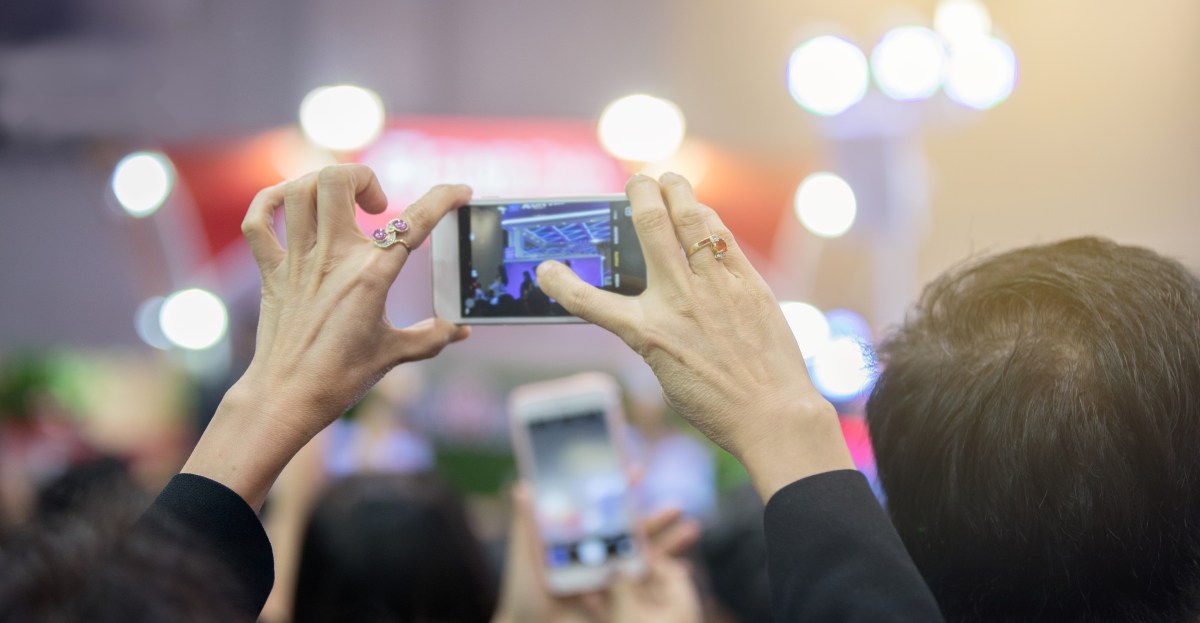- cross-posted to:
- privacy@lemmy.ml
- cross-posted to:
- privacy@lemmy.ml
Generally speaking, it is “OK” if you happen to capture people on video while you are recording a public space.
However, the article is referring to situations where people are being video recorded, without their knowledge, as the main focus of the video.
In this case, it should be treated like any TV or movie set, where consent must be given.
I see it as video recording for commercial use, so permits should also be required by these social media degenerates, before a single frame is captured.
I believe that’s not the law though. The law outlines the conditions under which a person has an “expectation of privacy.” If you’re inside your house, you have an expectation of privacy and so should not be filmed. If you’re on the sidewalk in public, you have no expectation of privacy. If you’re in a private establishment (restaurant or store for instance), the owner or their representatives can ask you not to record and you have to comply.
All of street photography depends on this kind of legal framework.
If you’re on the sidewalk in public, you have no expectation of privacy.
Under normal context, that’s correct.
But if you are purposely being filmed as part of a movie, project, “prank” or anything else that makes you the “talent”, it moves into a commercial licensing/permit/consent realm.
I’ve been to loads of public events where I’ve had to sign a release form acknowledging that my photo may be captured and that those images may be used in marketing/social media posts, etc. That’s because being at the event makes me the subject. While this wouldn’t be a concern if other people in the group are taking photos/video for their own personal use, the fact that those images may be used for commercial purposes changes the context.
If social media asshats want to use someone’s photos or video for their own commercial purposes, they should be following the same rules as any other professional.
For clarity, we aren’t talking about randos being filmed while on a walking tour of a city; we’re talking about specific people being targeted and recorded as the main subject without consent and with the explicit purpose to use their video for commercial content.
Nearly every country has laws protecting people from having their images used for commercial purposes without consent.
Law and morality don’t always align, what’s legal is not always morally good and should not be treated as such
My thoughts exactly
Yeah, I don’t agree with the whole “photographer owns full rights of their productions”. Not sure if that applies to video. But the subjects of the photo should also have rights such that any can block the others from using it if they don’t want it used for profit. Maybe also with the ability to revoke that consent later on (though that would complicate paying for the right).
Local laws may apply, since common sense is a thing of the past.
Yes. When they are cops or being hassled by cops. Next question
According to us law I thought it always is “ok”
Legality and morality aren’t necessarily the same.
Wow, mind = blown
Makes me long for a simpler time..
If you tried to film like that nowadays, people would get really hostile.
Probably because of the Internet
Definitely. The people in that clip had no idea millions of people would see that video. Apart from funniest home video shows, there was no concept of home movies going viral.
Nowadays anyone filming that shit is an in-genuine influencer and it’ll be uploaded to ((mass surveillance tech company)) if it’s not live-streamed.
True, though curiously if you appear with a big camera people respond far better than to a phone camera, despite the familiarity of the latter.
Here is an alternative Piped link(s):
Makes me long for a simpler time.
Piped is a privacy-respecting open-source alternative frontend to YouTube.
I’m open-source; check me out at GitHub.
Current age is so, so weird. A few years back someone got filmed having a very quiet lunar new year dinner at a restaurant and posted on reddit, which to that family might be a very normal thing, yet to the one that filming and a lot of netizens, it’s weird. The comment section is very unkind to that family and this honestly made me slowly and quietly quitting reddit. I’m sure there’s a lot more example in cringe tok.
So while in public you don’t have a reasonable expectation of privacy. That being said flashing like the woman did in this story is sexual assault and and should be treated as such.
I just assume I could possibly be filmed in public wherever I am whether crossing the street or watching some obscure local punk band in a dive bar. Do I like it? Not necessarily, but in the age of mass surveilance and ubiquitous smartphones it’s not something I can really control in any way outside knowing it is there and obscuring my face when doing cool shit.
deleted by creator
Completely legal where I amBesides, we’re recorded on cameras dozens of times a day almost everywhere
If they’re incidental to some other thing you are filming, probably ok but consider blurring their faces prior to publication.
If filming as evidence, consider not uploading or sharing unless you have exhausted other avenues of getting that evidence to the relevant people.










